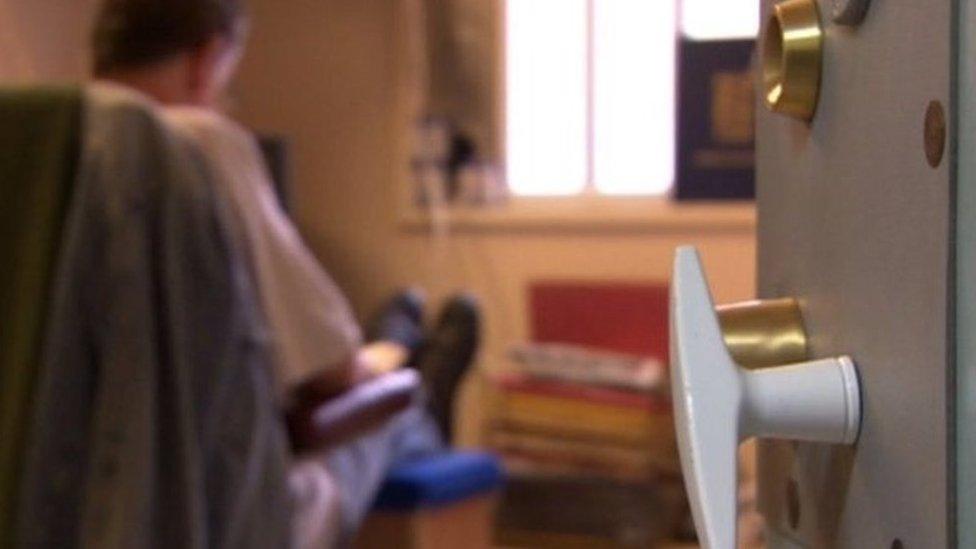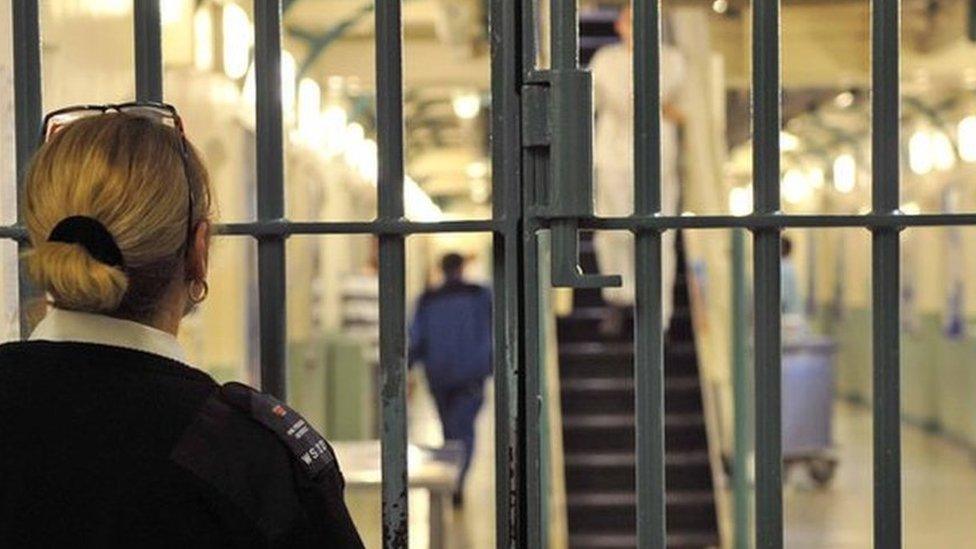Sex offenders: Public not protected enough, say inspectors
- Published

The chief inspector of probation said "it's a very troubling picture indeed"
Not enough is being done to protect the public in England and Wales from sex offenders, inspectors for the prison and probation services have found.
In two cases, convicted sex offenders who should have been put in monitored bail hostels after leaving jail were allowed to stay in budget hotels.
The warnings are in a new report, following the first inspection to focus on sex offenders in nine years.
The government has promised to tackle the "very serious" concerns raised.
In their joint review, released on Thursday, the separate watchdogs for prisons and probation said urgent action was needed to make sure that managing sex offenders is a national priority.
The chief inspector of probation, Dame Glenys Stacey, said: "The public might be assuming that all possible work is done in prisons and in the community [to reduce the risk to the public] and that is simply not the case."
Much of the work in custody to address sexual re-offending was said to be "poor", the report said.
It found:
Courses to stop re-offending, known as accredited programmes, were not used enough. Out of 120 probation cases inspected, only 17 offenders of the 42 ordered to start a programme had done so
Proper safeguarding checks were not being carried out - in one in three cases, children were not being protected properly
Four in 10 sex offenders who had been released from prison were doing no work at all to reduce the risk of re-offending
One third of offenders had not been visited at home after leaving prison, a visit that would allow staff to check up on them
In 42 cases, the offender - after leaving jail - should have faced enforcement action for missing appointments, breaching licence conditions or re-offending. But in nearly half of cases, no action was taken
Two weeks in hotel
The report says a 25% shortfall of places in approved premises - also known as probation or bail hostels where prisoners can be safely monitored on release - meant some sex offenders were placed in unsuitable accommodation.
One man, assessed as posing a high risk of harm after serving four years in jail, spent at least two weeks in a budget hotel.
"We found it hard to see how such accommodation could be defensible in terms of protecting the public," the inspectors said. "Other hotel residents are likely to be transient and close monitoring of the offender problematic."

In another case, one inmate had used another prisoner's phone account to contact his victim.
The jail was too slow to react and had not monitored the inmate's communications as would be expected, the inspection found.

How many convicted sex offenders are there?
There were 13,535 inmates serving prison terms for sex offences in England and Wales, according to the latest figures, external in June 2018. That is almost a fifth of the total prison population.
The number of prisoners serving immediate custodial sentences for sex offences is at its highest level in 17 years.
The last inspection of this kind was carried out in 2010. Since then, the number of registered sex offenders has increased from 34,939 to 58,637 in March 2018., external

The inspectors examined 53 cases across five male prisons and studied 120 probation cases.
Dame Glenys said: "With many probation staff unsure what to do for the best with sexual offenders under probation supervision, the public are not sufficiently protected. This makes no sense."
Meanwhile separately, the head of charity the Howard League for Penal Reform, has warned there could be more victims of sexual crimes if funding for a national support scheme to help rehabilitate sex offenders is cut.
The scheme - called Circles of Support and Accountability and which sees volunteers meet convicted sex offenders - is at risk as its funding is being cut by the National Probation Service.
Charity boss Frances Crook said: "What will happen is the men coming out of prison or given a community sentence will not get the support they need, they will just be dumped into local communities and I fear that that could mean that those men may go on to commit another crime and create more victims and nobody wants that."
'Very serious concerns'
The Ministry of Justice said it was "absolutely not standard practice to release sex offenders into hotels" - and where possible, they would be released to "stable, risk-assessed accommodation".
Sometimes in exceptional circumstances, sex offenders might need to be placed temporarily in hotels but it would follow a "comprehensive risk-assessment" to ensure no risk to the public, the government added.
Rory Stewart, the minister for prisons and probation, said: "We have already introduced a new director general role for probation to develop a dedicated approach to managing sex offenders, and we are expanding supervised accommodation, investing in training and deploying specially trained probation officers to focus on sex offenders in prison.
"However, the inspectors raise very serious concerns - we will get to the bottom of the problems this report raises and tackle them one by one."
- Published28 November 2018

- Published30 June 2017
- Published25 July 2018

- Published1 August 2018
